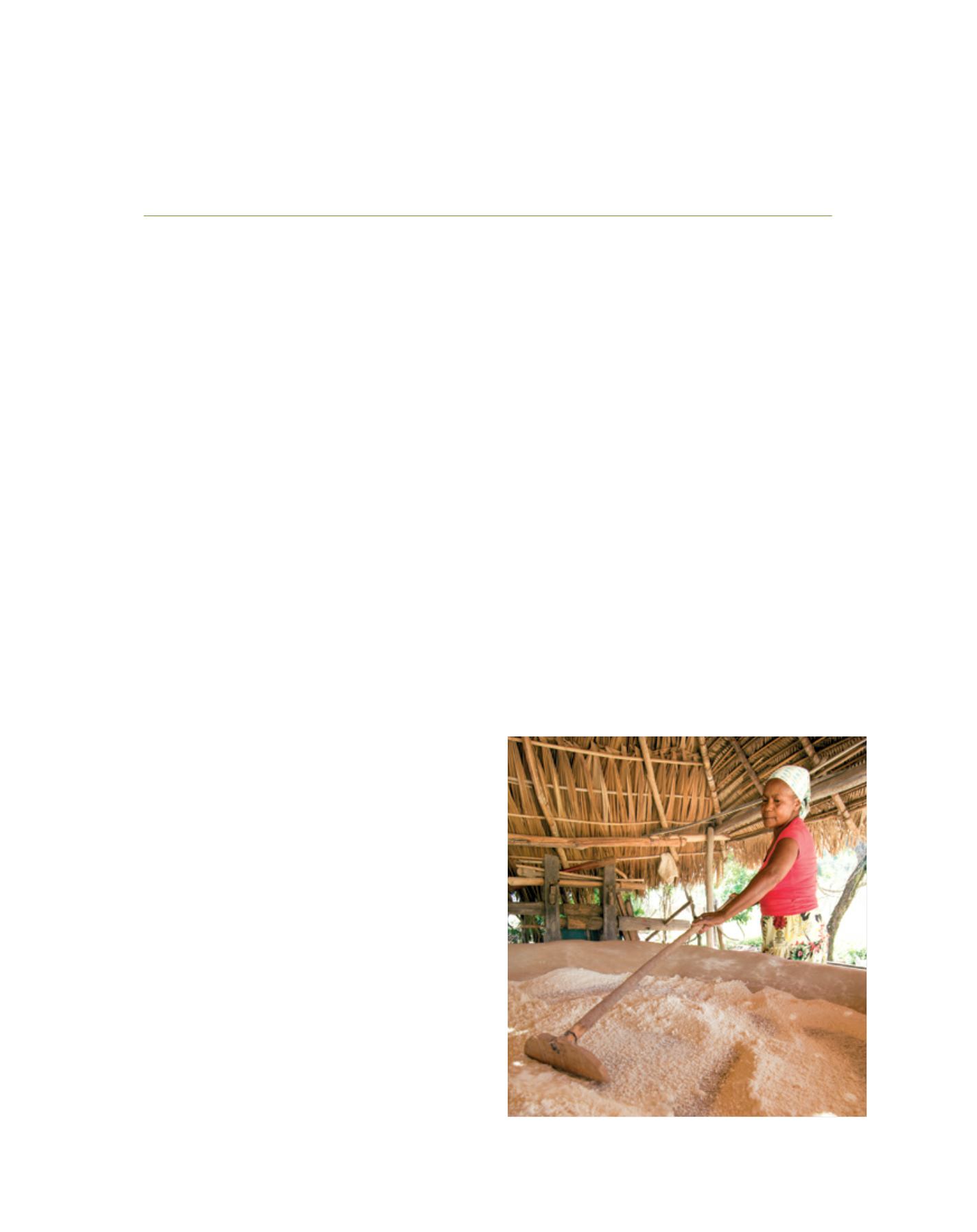

[
] 222
Public policies for family farming in Brazil:
towards a sustainable development model
Laudemir André Müller, Minister of Agrarian Development, Brazil
I
n recent years the concept of development has
been increasingly linked to sustainability. Indeed,
at the United Nations Conference on Sustainable
Development in Rio in 2012, world leaders recognized the
need to strengthen the three dimensions of sustainable
development – economic, social and environmental – in
a balanced and integrated way. Rural populations, and
family farmers in particular, are increasingly seen as a
part of the solution.
Since 2003, Brazil has undergone a political transformation
leading to the creation of a large and dense network of public
policies for family farming in partnership with rural social
movements. The creation, expansion and fine-tuning of specific
public policies for family farming is the main nexus for resolv-
ing a triple paradox of family farming worldwide, being:
• the main source of employment and income while
representing most of the extreme poor (economic
dimension)
• the main provider of food while constituting the majority
of the world’s hungry (social dimension)
• the main actor responsible for sustainable management
of natural resources and conserving biodiversity, but also
the sector most vulnerable to climate change and the loss
of biodiversity (environmental dimension).
During the military regime from the 1960s to the 1980s, Brazil
focused mainly on developing capital-intensive, large-scale,
export-driven agriculture. The subsequent democratiza-
tion process – significantly driven by organized segments of
civil society including rural social movements – enabled the
marginalized rural poor to be taken into account by government
institutions, eventually resulting in the creation of the Ministry
of Agrarian Development (MDA) in 1999. Participatory institu-
tions and mechanisms at municipal, territorial and state level,
and a National Council for Sustainable Rural Development,
have enabled a rich, permanent dialogue between rural social
movements and government representatives.
Another milestone was the approval of the Family Farming
Bill in 2006, which consolidated the nascent public policies
and the national registry system by which individual family
farms and cooperatives become eligible to access the ministry’s
different policies. These measures have all been fundamental
to the success of Brazil’s rural development strategy, and are
the result of persistent government commitment to prioritize
the strengthening of family farming.
Economic sustainability
Eradicating poverty is considered the most pressing global
challenge today, and can only be achieved by addressing the
concerns of rural populations. About 70 per cent of the 1.4
billion people below the poverty line live in rural areas, many
among the world’s estimated 2.6 billion family farmers. In
many parts of the global south, there is unexplored potential
for labour-intensive productivity rises in small and medium-
scale production, which can only be met with the creation of
specific public policies for this sector.
In 2003, most of Brazil’s 4.3 million family farms – which
employ 74 per cent of the country’s agricultural labour –
had no access to credit or other policies and were engaged
mainly in subsistence farming. MDA created a set of policies
which have expanded in range and scale to increase cover-
age and account for the rising production of family farmers.
For instance, the budget of the National Programme for the
Strengthening of Family Farming (PRONAF), which provides
public and private loans at preferential rates to family farmers,
has risen tenfold since 2003, reaching R$24.1 billion in 2014.
Likewise, public investment to rebuild a national system of
Family farming provides most of the food consumed in Brazil
Image: Eduardo Aigner
D
eep
R
oots
















